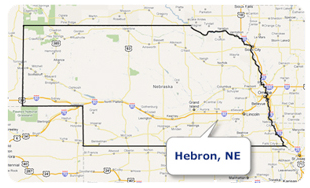Implementation Support for Critical Access Hospitals and Other Small Rural Hospitals
Introduction
The U.S. Department of Health and Human Services (HHS) is committed to helping Critical Access Hospitals (CAHs), rural hospitals and other rural health care providers overcome barriers to health IT adoption and achieving meaningful use. Several other federal agencies are also involved in the effort to help rural health care providers transition to electronic health records (EHRs). The National Learning Consortium is collecting resources from government agencies and their private sector partners and grantees from across the nation to help your organization implement health IT. This page is a one-stop shop for rural health IT adoption and implementation resources for CAHs and other small, rural hospitals.
Rural Health IT Adoption & Implementation Resources
The following tools and resources were developed to assist rural health care providers in health IT adoption and implementation. CAHs and other small rural hospitals can use these resources to overcome barriers to health IT adoption and implementation.
Office of the National Coordinator (ONC)/Agency for Healthcare Research and Quality (AHRQ) Resources
- Health IT Regional Extension Centers: Regional Extension Centers (RECs) are located in every region of the country to assist health care providers select, implement, and become adept and meaningful users of EHRs. In 2010 and 2011, ONC made over $27 million in supplemental funds available to RECs to provide assistance for up to 1,501 CAHs and other small, rural hospitals. Contact your local REC to find out if you are eligible for free or reduced-price support.
- Telligen Webinars
 : Developed by Telligen Health Information Technology Regional Extension Center, the REC for Iowa, these webinars are intended to inform and educate critical access and rural hospitals on a variety of topics.
: Developed by Telligen Health Information Technology Regional Extension Center, the REC for Iowa, these webinars are intended to inform and educate critical access and rural hospitals on a variety of topics. - AHRQ Health IT Tools and Resources: These tools and resources were developed to help health care providers plan for, implement and evaluate health IT. These tools describe and recommend strategies for addressing some of the common challenges that organizations encounter when working with health IT systems.
National Rural Health Resource Center (NRHRC) Resources
- Rural Assistance Center Health Information Technology Toolkit
 : This toolkit provides federal resources to guide rural health care facilities and providers through the phases of selection, implementation and operation of health systems.
: This toolkit provides federal resources to guide rural health care facilities and providers through the phases of selection, implementation and operation of health systems. - National Rural Health Resource Center HIT Network Readiness Assessment
 : Rural health care providers can use this tool to assess organizational strengths and weaknesses and target a network’s technical assistance needs. It is intended to be used as a self-assessment instrument that network leaders and members can use to identify areas needing attention.
: Rural health care providers can use this tool to assess organizational strengths and weaknesses and target a network’s technical assistance needs. It is intended to be used as a self-assessment instrument that network leaders and members can use to identify areas needing attention. - National Rural Health Resource Center Sample HIT Network Strategy Map
 : This document is a starting point for networks interested in creating a health IT strategy map to use as a visual representation of the organization’s strategies.
: This document is a starting point for networks interested in creating a health IT strategy map to use as a visual representation of the organization’s strategies. - Delta Rural Hospital Performance Improvement Program HIT Workforce: Current Issues and Recommended Solutions
 : This guide provides information on the health IT workforce challenges facing rural health care providers.
: This guide provides information on the health IT workforce challenges facing rural health care providers.
Health Resources and Services Administration (HRSA) Resources
- HRSA Rural Health IT Adoption Toolbox: This resource is targeted towards rural health care providers seeking to implement health IT to improve the overall effectiveness of their institutions.
- Meaningful Use and Critical Access Hospitals: A Primer on HIT Adoption in the Rural Health Care Setting: The Primer focuses on rural health IT adoption, American Recovery and Reinvestment Act provisions, and support for health IT adoption in small practice settings, including CAHs.
Toolkits
- Broadband Toolkit: Developed by the Virginia Office of Telework Promotion & Broadband Assistance, this toolkit serves as a roadmap for communities seeking to obtain affordable “last mile” broadband services through a community influenced model.
- Stratis Health Information Technology Toolkit For Critical Access and Small Hospitals
 : This toolkit is designed to help CAHs and small rural hospitals assess their readiness for transitioning to EHRs as well as plan, select, and implement health IT. The toolkit also contains numerous resources, including tools for telehealth, health information exchange, and personal health records.
: This toolkit is designed to help CAHs and small rural hospitals assess their readiness for transitioning to EHRs as well as plan, select, and implement health IT. The toolkit also contains numerous resources, including tools for telehealth, health information exchange, and personal health records.
Funding Opportunities
The following federal funding opportunities are targeted to assist rural health care providers in building the infrastructure needed for rural health IT adoption and implementation:
United States Department of Agriculture (USDA) Resources
- USDA Community Facilities Loans and Grants: These programs provide grants, loans and loan guarantees for essential community facilities projects in rural areas. Priority is given to health care (including health IT) projects as well as other community initiatives.
- USDA Distance Learning and Telemedicine Loan and Grant Program: Through loans and grants, this program extends access to advance telecommunications technologies that enhance learning and health care opportunities for rural residents.
- USDA Community Connect Grants: This program serves rural communities where broadband service is least likely to be available. The grant funds a community center with free broadband service for two years and pays for construction of broadband service to residents, businesses and key community facilities such as schools and healthcare institutions.
- USDA Farm Bill Broadband Loan Program: This program is designed to provide loans for funding, on a technology neutral basis, the costs of construction, improvement, and acquisition of facilities and equipment to provide broadband services to eligible rural communities.
- USDA Telecom Infrastructure Loans: This loan program makes long-term direct and guaranteed loans to qualified organizations for the purpose of financing the improvement, expansion, construction, acquisition, and operation of telephone lines, facilities, or systems to furnish and improve Telecommunications services in rural areas. All facilities must be capable of supporting broadband services.
Federal Communications Commission (FCC) Resources
- Rural Health Care Program
 : Administered by the Universal Service Administrative Company under the oversight of the Federal Communications Commission, this program provides reduced rates on telecommunications and Internet services to eligible rural health care providers in the United States.
: Administered by the Universal Service Administrative Company under the oversight of the Federal Communications Commission, this program provides reduced rates on telecommunications and Internet services to eligible rural health care providers in the United States. - Health Care Connect Fund: Administered by the Universal Service Administrative Company under the oversight of the Federal Communications Commission, this program builds on the success of the Rural Health Care Pilot Program by providing support to eligible public and not-for-profit health care providers for the cost of broadband services or facilities that are used for health care purposes.
Local Implementation Support
Regional Extension Centers (RECs) offer unbiased EHR adoption support throughout the EHR implementation process – from start to finish. These organizations, funded by the Office of the National Coordination for Health Information Technology (ONC), also serve as two-way pipelines to local and federal resources.
RECs can help with EHR implementation and project management, vendor selection, workflow redesign, privacy and security, training, ongoing technical assistance, and more.




